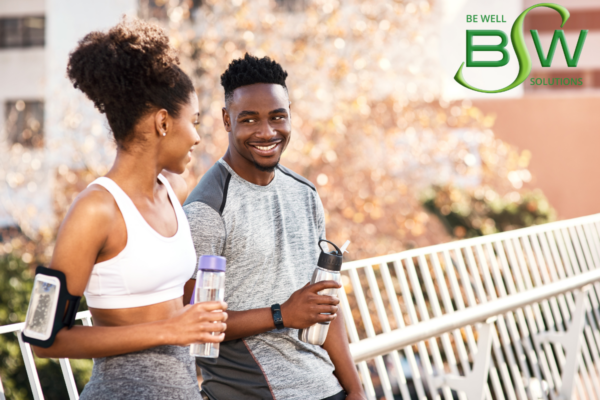Hydration is quite the trend in recent years, and that makes complete sense, as water is essential for life. Even subtle dehydration can impair performance in numerous areas. Every part of our body needs water to function properly.
With that said, what really constitutes adequacy in hydration? This can be confusing, as the internet is rife with contradictory information and influencers carrying gallon jugs or toting the hottest water bottle.
Daily Requirements Depend on Several Factors
In the US and Canada, the Dietary Reference Intake (DRI) (www.ncbi.nlm.nih.gov/books/NBK45182/) recommendations determine “Adequate Intake” (AI), based on research conducted in healthy people. However, it is acknowledged that studies on fluid intake are difficult to conduct and depend on several individual factors. The US National Academies of Sciences, Engineering and Medicine tell us that daily AI for adults is as follows:
- Males – 3.7 L of total fluids (about 125 fluid ounces).
- Females – 2.7 L of total fluids (about 90 fluid ounces).
About 20% of the calculated AI comes from food and the rest comes from fluids. Most drinks count toward the AI, including milk, juice, teas and coffee. We always recommend staying away from beverages with added sugar or artificial sweeteners.
Remember, your individual fluid requirements can be influenced by many factors. Since adequate hydration is essential for attention, concentration, coordination, and other essential functions, we believe it is a good idea to err on the side of over hydrating, especially during periods of exercise or in hot weather.
Risks of going without proper sports hydration range from lack of concentration and hand-eye coordination, nausea and stomach aches, to heat illness like heat stroke/heat exhaustion. As discussed elsewhere in this newsletter, the easiest way to assess your hydration status is to monitor the color of your urine – if it is close to clear you are well hydrated!
Our Dietitian Weighs in on Sports Hydration
To help you stay hydrated during exercise, here is a brief review of available beverages along with examples of workouts that may call for their use.
- Water – perfect for rehydrating in short, low-intensity non-extreme sports/environments. This is a beverage you might consider when starting your activity well-hydrated. Example: going for a 30-minute post lunch walk on a 65-70°F day.
- Low Calorie Sports Drinks – no calorie and low-carbohydrate/calorie versions of sports drinks (Gatorade Zero/G2/Powerade Zero Sugar/Vitamin Water/Propel/Liquid IV packets) provide hydration with some electrolytes and micronutrients. These may help maintain fluid balance when performing medium-to-high-intensity activity or in more extreme climates. The electrolytes (sodium, potassium and chloride) help replenish what we lose in sweat. Those containing some carbohydrates can also provide further benefit in the form of energy to keep us moving. Example: one hour of power yoga in a heated studio.
- Regular Gatorade/Powerade/Vitamin Water – these products have higher levels of carbohydrates (and calories) to help with fluid and energy replenishment. They are geared toward sustained (more than an hour), high-intensity activity. We break down stored nutrients for energy usage in sports, and we might need to replace a few quick carbs to keep going. These beverages are formulated so that the carbohydrates and electrolytes are absorbed quickly. Example: a couple hours actively playing basketball in a hot environment; running in a half marathon.
- Milk – whole milk provides the optimal protein: carbohydrate ratio for after-exercise muscle recovery, especially chocolate milk! Research has shown that milk consumed 30-60 minutes after completion of a higher intensity workout has the potential to benefit hydration status and boost muscle recovery. Example: after a sports practice.
We Suggest Caution if Considering the Following:
- Celsius/Monster/”Energy” Drinks – contain various supplements, such as carnitine, guarana, and caffeine. While some supplements have potential for positive impact on aspects of performance, these drinks aren’t the best options when it comes to hydration. They may also contain high levels of different carbohydrates, but not always the most effective amounts and types for sports. Basically, these are beverages with creative marketing that can be tasty and provide some bursts of energy but won’t provide the same benefits as the beverages mentioned above.
- Body Armor – popular on the market today, but not the best sports drink option, as it does not contain carbohydrates. It is a sugar-free option that uses sugar alcohol and stevia for sweetness. Sugar alcohols, like the erythritol in this product may cause stomach pain and nausea if overconsumed, which obviously is not ideal for performance!
- Muscle Milk – much like energy drinks, drinks like muscle milk are considered supplements and aren’t FDA-regulated like our foods. Muscle milk and similar products with added protein may contain a variety of heavy metals due to manufacturing practices of the supplemental protein. Heavy metals can cause a multitude of health effects, therefore, it’s better to go with dairy and other non-dairy milk alternatives when it comes to milk.
For more information on hydration check out the articles from the American Academy of Nutrition and Dietetics (www.eatright.org).
Contributed by BWS Dietitian: Ivana Petrovic RDN, LD
Continue Reading July 2023 Newsletter: Five Smartest Things 2023

